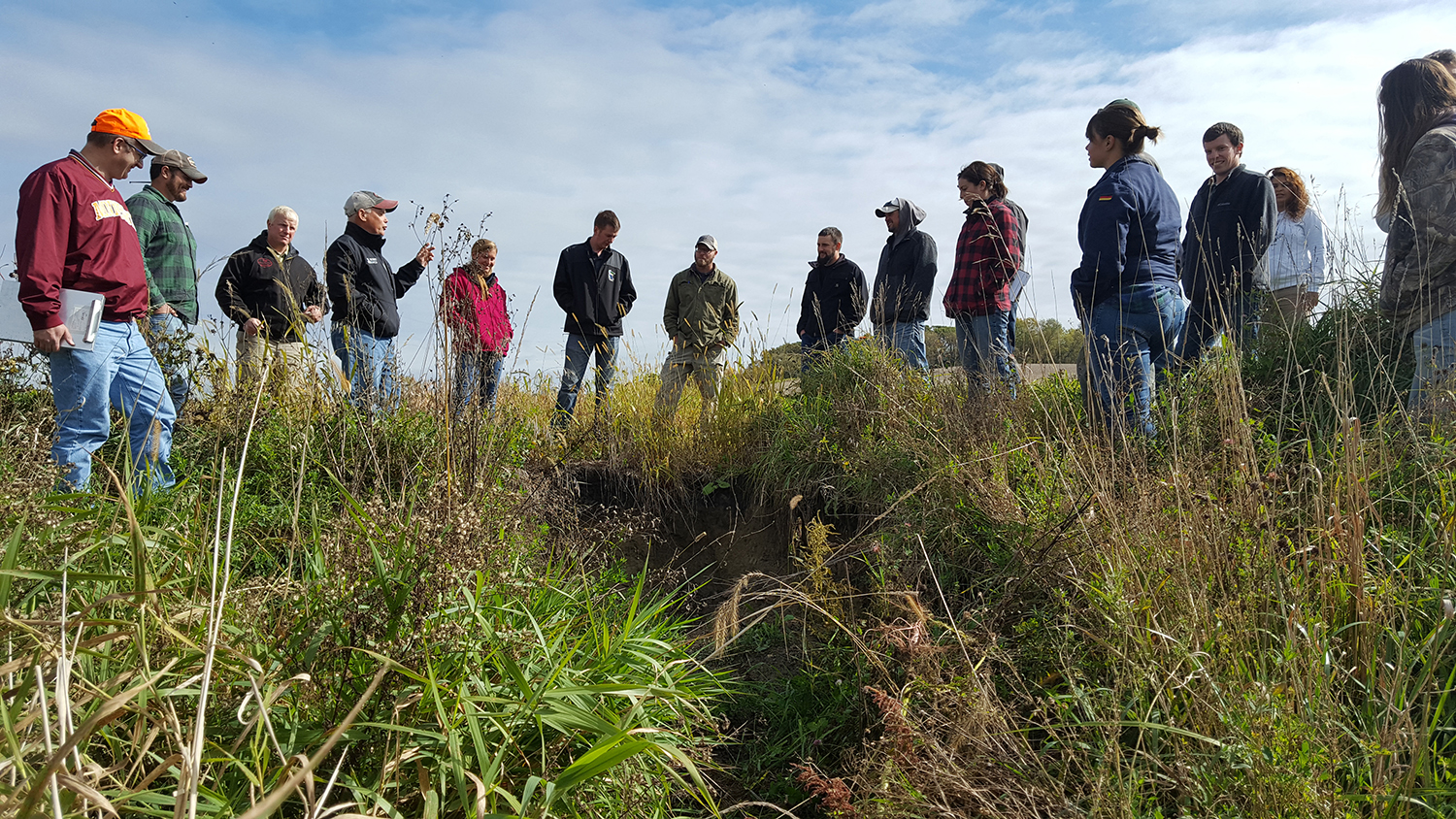About the Technical Training and Certification Program
The Technical Training and Certification Program (TTCP) is a collaborative effort between MASWCD, MACDE, NRCS and BWSR, and is designed to efficiently provide training to develop and maintain a highly trained, technically skilled workforce of natural resource professionals capable of meeting the conservation delivery needs of Minnesota. The partnership established a renewed commitment and partnership for technical training in Minnesota and is committed to providing resources and leadership to achieve program goals, including:
- a streamlined and coordinated approach to assessing needs and delivering training
- increasing opportunities for obtaining job approval authority for conservation practices
Technical Training and Certification Strategy
Establishing conservation practices on private lands in Minnesota is critical to achieving state and federal goals for clean and sustainable water resources, healthy and sustainable soil resources, and abundant fish and wildlife. Conservation Technical Assistance requires statewide, core technical assistance capabilities, as well as capabilities tailored to the local priority resource concerns and conservation practices found in the diverse landscapes of Minnesota. Training and certification are key quality assurance elements of an effective conservation delivery system.
The primary reason this partnership was created was to address input from SWCDs and NRCS, which indicated technical training needs were not being met. Technical training inadequacies initially identified from 2013 to 2015 led to the development of the 2015 Technical Training and Certification Strategy, which resulted in the creation of the Technical Training and Certification Program in 2016 to address these needs.
An evaluation of TTCP’s efforts to implement the 2015 strategy were evaluated in 2020, and the findings were used in the development of the Technical Training Certification Program 2015-2020 Implementation Evaluation Report. The conclusions and recommendations from this report were used as the foundation for the development of the updated Technical Training and Certification Strategy.
Using the goals and objectives identified in the updated Strategy, the next step was to determine success for the Program. The measurement of these goals and objectives are outlined in TTCP Success: 2020-2023.
- TTCP Evaluation: 2015-2020
Technical Training and Certification Strategy Implementation Evaluation
Throughout 2020 the Technical Training and Certification Program has been evaluating the implementation of the Technical Training and Certification Strategy. One significant source of information was a survey that was distributed to all NRCS, SWCD, and MASWCD employees in April, 2020. The results of this survey, and other sources of data, were used to evaluate where the program is on track and where additional efforts are needed. The results from this evaluation can be found in the Technical Training and Certification Program 2015-2020 Implementation Evaluation Report. The information from the evaluation will also be used in the development of an updated Technical Training and Certification Strategy.
- TTCP Strategy: 2015-2020
Technical Training and Certification Strategy
In order to achieve these goals, the partnership created a Technical Training and Certification Strategy (pdf) designed to provide a framework for development of training and credentialing for local conservation professionals.
The purpose of the technical training and certification strategy is to provide a framework for development of training and credentialing for local conservation professionals. Seven strategies were advanced by the partnership to achieve this purpose.
Core Competencies – Core competencies form the foundation for all technical services. Core competency training in Soils, Water Quality and Conservation Planning will be provided to all conservation district employees and NRCS field staff.
Priority Resource Concerns and Practices – Priority resource concerns and conservation practices will be identified at the local level. Requisite technical skills for employees will be identified based on these local priorities.
Individual Development Plans – Employees providing technical services create individual development plans based on local priority resource concerns and conservation practices.
Training Needs Inventory – An annual technical training needs inventory will identify conservation planning and technical training needs.
Training Roles and Responsibilities - NRCS, BWSR, MASWCD, and MACDE will identify the roles of each organization in providing long term support and/or delivery of technical training. This will ensure that a complete suite of training is predictably and consistently available to meet the training needs identified through the training needs inventory process.
Credentialing - The system ensuring that employees providing technical services in Minnesota are qualified to implement conservation practices and activities includes certification, obtaining job approval authority, and/or other means to achieve credentialing. The current NRCS job/technical approval authority structure may provide guidance and/or is part of the credentialing system for many of these requirements.
Continuing Education and Training – Technical training opportunities are continually evaluated and prioritized so technical staff can maintain and increase technical competency.


